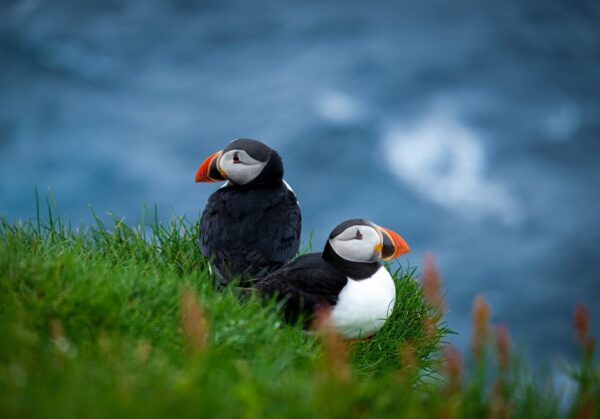Countries from around the North-East Atlantic met in Oslo, Norway for the 2023 meeting of the OSPAR Commission for the Protection and Conservation of the North-East Atlantic.
OSPAR Contracting Parties agreed to extend its largest Marine Protected Area (MPA) to include the seabed and a number of additional species and habitats, such as coral gardens and deep-sea sharks, within the scope of the MPA. The North Atlantic Current and Evlanov Sea basin MPA was originally designated with the goal of protecting, conserving, maintaining, and restoring seabird populations and marine biodiversity.
At its Ministerial meeting in 2021, OSPAR designated the high seas North Atlantic Current and Evlanov Sea basin MPA, which covers nearly 600,000 km2, an area the size of France. The MPA protects a vitally important area for seabirds. Based on tracking data, the Site was found to be an important feeding and foraging area and is used both by seabirds breeding on the coasts of the North-East Atlantic, and by those migrating across the globe or nesting in other parts of the world.
Photo: Jessica Pamp
Birdlife International, who had been calling for the extension of the MPA, hailed the decision as a ‘victory’, going on the say that OSPAR had acknowledged the site’s unparalleled significance for a multitude of marine species and the extraordinary value of its seabed habitats.
OSPAR
The OSPAR Commission was set up by the 1992 OSPAR Convention for the Protection of the Marine Environment of the North-East Atlantic, which unified and updated the 1972 Oslo and 1974 Paris Conventions. It brings together the governments of Belgium, Denmark, Finland, France, Germany, Iceland, Ireland, Luxembourg, the Netherlands, Norway, Portugal, Spain, Sweden, Switzerland and the United Kingdom, together with the European Community.
Once in a decade Quality Status Report
OSPAR finalised the text of its Quality Status Report (QSR) 2023, its holistic assessment of the health of the North-East Atlantic. This once in a decade assessment is a truly collective endeavour that was only possible through the dedication of over 400 scientists, policy experts and observers from across OSPAR’s work areas. The QSR is made up of over 120 assessments, some using pioneering and unique methodologies, to assess key marine species and the habitats they depend on, the intensity of human activities at sea and the pressures they result in, including radioactive substances, offshore oil and gas industries, renewable energy generation, tourism and many more. Pollution from nutrients and hazardous substances, and other pressures such as marine litter or underwater noise are also addressed.
The QSR 2023 also considers the impacts of climate change and ocean acidification on the North-East Atlantic. The QSR will be formally launched in autumn 2023 when it will be made publicly available on the OSPAR website.
Further information from OSPAR can be read here.
